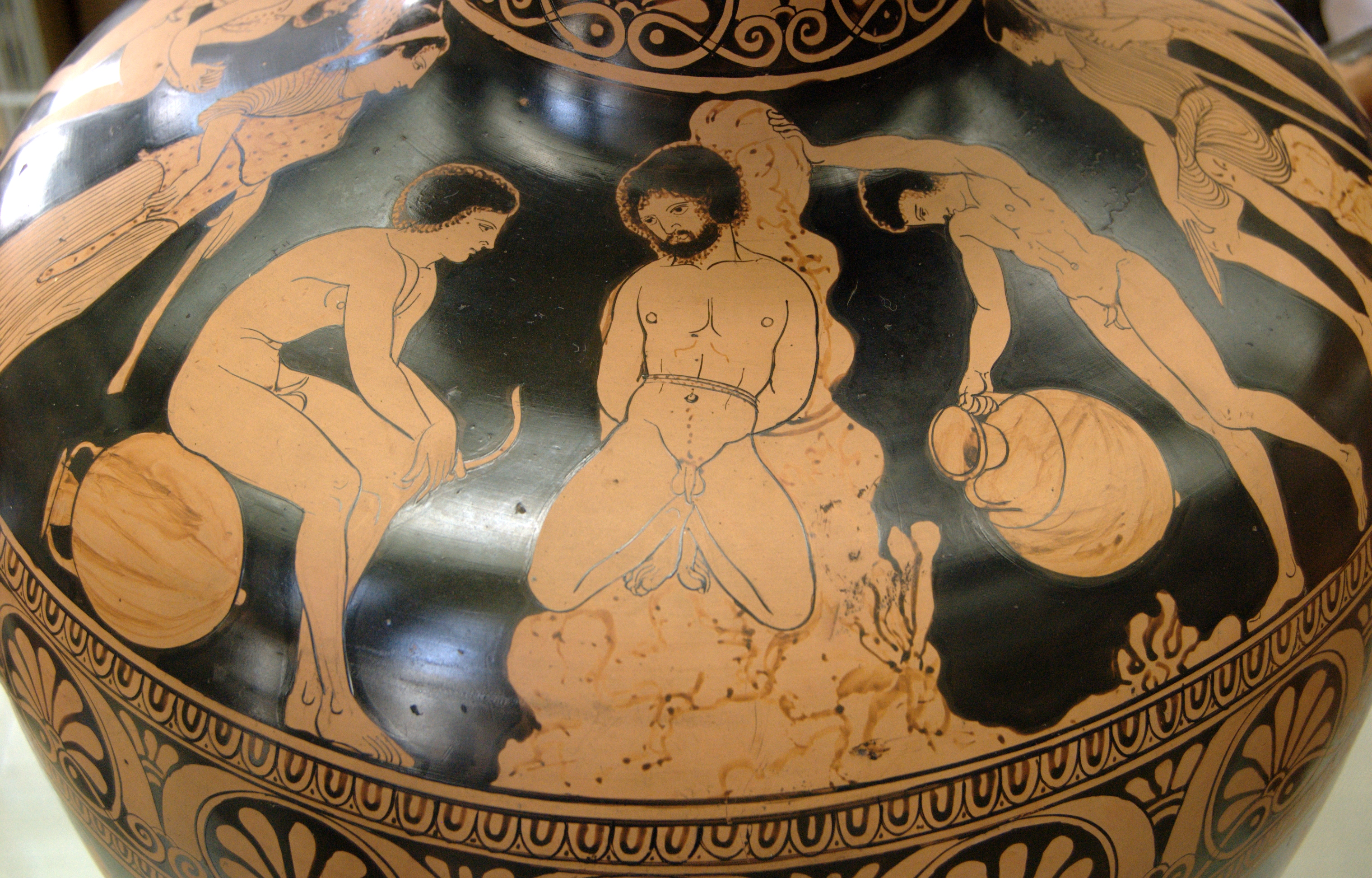Amycos Satyrykos on:
[Wikipedia]
[Google]
[Amazon]
 The ''Amycos Satyrykos'' is a fragmentary
The ''Amycos Satyrykos'' is a fragmentary
 The ''Amycos Satyrykos'' is a fragmentary
The ''Amycos Satyrykos'' is a fragmentary satyr play
The satyr play is a form of Attic theatre performance related to both comedy and tragedy. It preserves theatrical elements of dialogue, actors speaking verse, a chorus that dances and sings, masks and costumes. Its relationship to tragedy is st ...
by the fifth-century BCE Athenian
Athens ( ) is the Capital city, capital and List of cities and towns in Greece, largest city of Greece. A significant coastal urban area in the Mediterranean, Athens is also the capital of the Attica (region), Attica region and is the southe ...
dramatist
A playwright or dramatist is a person who writes plays, which are a form of drama that primarily consists of dialogue between characters and is intended for theatrical performance rather than just
reading. Ben Jonson coined the term "playwri ...
Sophocles
Sophocles ( 497/496 – winter 406/405 BC)Sommerstein (2002), p. 41. was an ancient Greek tragedian known as one of three from whom at least two plays have survived in full. His first plays were written later than, or contemporary with, those ...
.
Content
This satyr play almost certainly told the story of theArgonauts
The Argonauts ( ; ) were a band of heroes in Greek mythology, who in the years before the Trojan War (around 1300 BC) accompanied Jason to Colchis in his quest to find the Golden Fleece. Their name comes from their ship, ''Argo'', named after it ...
and their encounter with Amycus
In Greek mythology, Amykos (), Latinized as Amycus, was the king of the Bebryces, a mythical people in Bithynia.
Family
Amycus was the son of Poseidon and the Bithynian nymph Melia.
Mythology
Amycus was a doughty man but being a king he ...
, an inhospitable king in Bithynia
Bithynia (; ) was an ancient region, kingdom and Roman province in the northwest of Asia Minor (present-day Turkey), adjoining the Sea of Marmara, the Bosporus, and the Black Sea. It bordered Mysia to the southwest, Paphlagonia to the northeast a ...
, who would challenge travellers to a boxing match before allowing them to draw water for their ships, and invariably killed his opponents. However, upon landing, Polydeuces promptly challenged and defeated the king, and depending on the author, the Argonaut then either killed Amycos or made him swear an oath on his life that he would no longer “maltreat strangers”. Jebb believes another ending, which was related by Periander
Periander (; ; died c. 585 BC) was the second tyrant of the Cypselid dynasty that ruled over ancient Corinth. Periander's rule brought about a prosperous time in Corinth's history, as his administrative skill made Corinth one of the wealthiest city ...
, wherein Amycos was put in chains, would have been more suitable for a satyr play; unfortunately, it is impossible to say for certain which of these endings was used by Sophocles Jebb p. 71
Date
Unfortunately, no date more precise than the 5th century BCE can as yet be reliably ascribed to the writing or production of the play.Extant Sources
Fragments of the ''Amycos'' by Sophocles are only found inAthenaeus
Athenaeus of Naucratis (, or Nαυκράτιος, ''Athēnaios Naukratitēs'' or ''Naukratios''; ) was an ancient Greek rhetorician and Grammarian (Greco-Roman), grammarian, flourishing about the end of the 2nd and beginning of the 3rd century ...
, ''Deipnosophists
The ''Deipnosophistae'' (, ''Deipnosophistaí'', lit. , where ''sophists'' may be translated more loosely as ) is a work written in Ancient Greek by Athenaeus of Naucratis. It is a long work of literary, historical, and antiquarian referenc ...
'' 9, 400B
References
* Jebb, Richard C. et al. (2010) ''The Fragments of Sophocles, Vol. 1'' Cambridge University Press * Lloyd-Jones, Hugh (1996) ''Sophocles Fragments, Vol. 3'' Loeb Classical library * Apollonius of Rhodes 2, 1-97 * Theocritus 22, 27-134 * Schol. Apollonius Rhodos 2. 98 {{Authority control Plays by Sophocles Satyr plays Lost plays